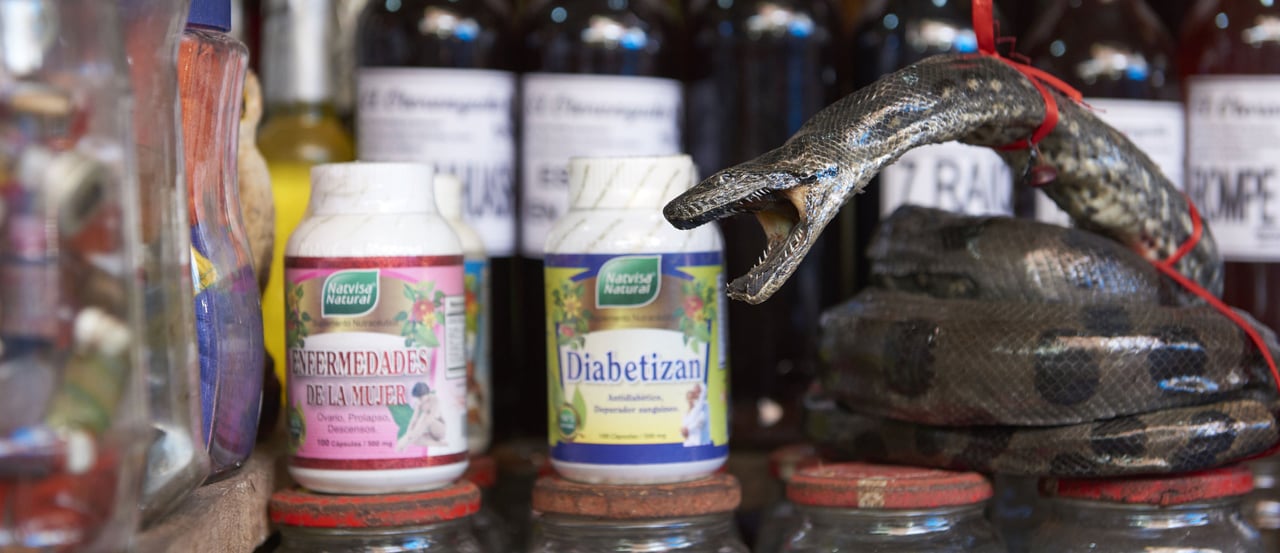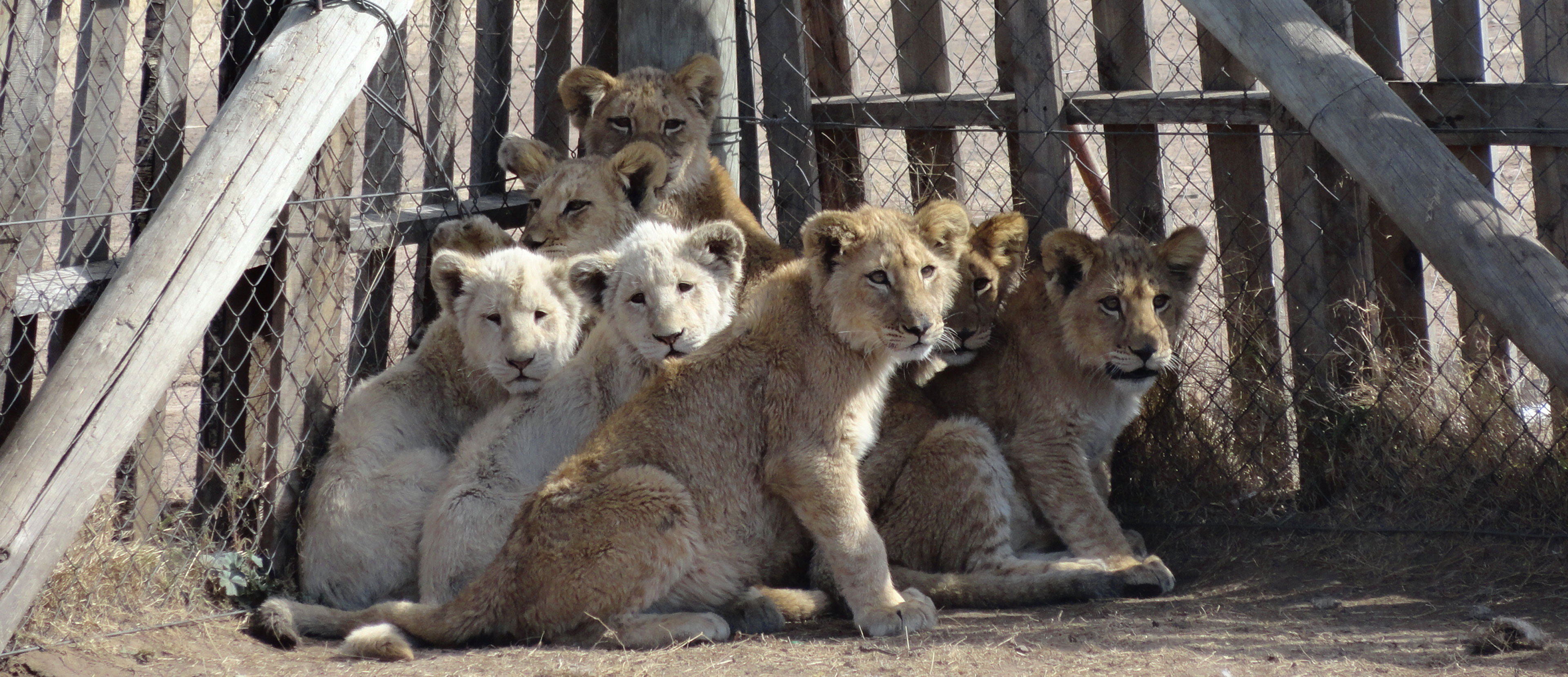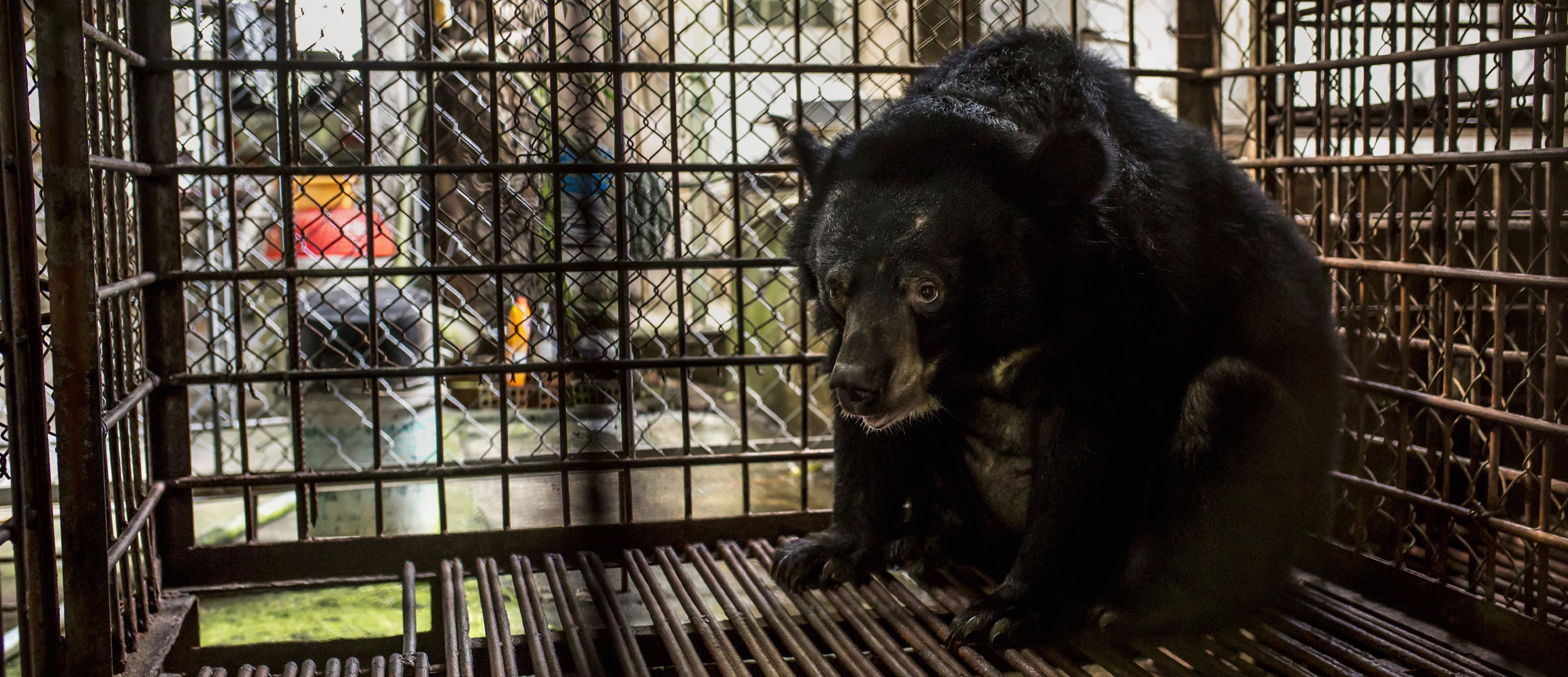End The Bear Bile Industry
The bear bile industry causes intense, unjustified suffering to bears across Asia – and with your help you can help us put a stop to it for good.

Ending commercial exploitation
The use of wildlife as traditional medicine is a phenomenon that occurs across the world and has been of cultural importance for many people and societies for millennia. These practices remain widespread and varied, involving a wide array of species across all taxonomic groups.
Primarily, traditional medicine uses plants and minerals to heal and cure illness, however a small number of preparations contain wild animal parts. This is causing untold animal suffering and cruelty, while threatening the survival of multiple species.
We are working to transform the traditional medicine industry, so the use of wild animals in medicinal and health products is no longer socially acceptable and is replaced with herbal (or other humane) alternatives.
World Animal Protection, in collaboration with the Wildlife Conservation Research Unit (WildCRU) and University of Oxford, has released evidence that provides new insight into the use of wildlife as Traditional Chinese Medicine (“TCM”) - with hopes of a solution that could protect wildlife from suffering and extinction.
TAWAP.org provides alternatives to wild animal preparations, using plant and mineral based ingredients instead.
 8,000-12,000 lions and thousands of other big cats, including tigers and cheetahs, are bred and kept in captivity in more than 350 facilities in South Africa. These predators are bred for commercial purposes, including interactive tourism, “canned” hunting, lion bone trade and live exports.
8,000-12,000 lions and thousands of other big cats, including tigers and cheetahs, are bred and kept in captivity in more than 350 facilities in South Africa. These predators are bred for commercial purposes, including interactive tourism, “canned” hunting, lion bone trade and live exports.
 We've been working for over 30 years to protect bears from being cruelly exploited for their bile, for use in traditional medicine, using painful and inhumane procedures endured over a lifetime in captivity in filthy and cramped conditions no bigger than a phone booth.
We've been working for over 30 years to protect bears from being cruelly exploited for their bile, for use in traditional medicine, using painful and inhumane procedures endured over a lifetime in captivity in filthy and cramped conditions no bigger than a phone booth.
A wide range of animals are used in traditional medicines, ranging from insects and birds to fish and mammals. Officially, there are 70 different wild animals used in traditional Chinese medicine listed in Pharmacopoeia. However, scientists have evidence of over 2,200 species being used.
Many animals used in traditional medicine are vulnerable or endangered. These include tigers, pangolins, rhinoceros, Reeves turtles, Tokay geckos, seahorses, pipefish, and many more. Some animals, like Saiga antelope, are still used despite being extinct in the wild and only found in captivity.
Traditional medicine was developed before modern medicine when humans used the plants and animals around them to create healing potions. Many communities have historical and cultural beliefs based on these traditional cures, still believing to this day that they possess unique therapeutic properties — despite scientific evidence to the contrary.
Such strong and continued beliefs in the healing efficacy of animal parts, like tiger bones and bear bile, make them high-value items and generate significant profit for suppliers. This fuels both legal and illegal wildlife trade, which in turn keeps traditional practices alive as suppliers continue to promote their use to line their pockets.
Traditional medicine uses many different parts of animals, including bones, shells, scales, horns, skin, gallbladders, eggs, and more.
However, most animals are targeted for one body part only. For example, both antelopes and rhinoceros are poached for their horns alone, while bears are killed just for their gallbladders. These practices are cruel and wasteful — and often illegal.
Many modern drugs include animal ingredients. These can be active ingredients (drugs) or inactive ingredients such as those used to create tablets or capsules — think gelatine, lactose, and shellac.
Unlike traditional medicine, animals used in pharmaceutical medicine are not endangered, highly regulated, and only used when there are no or few alternatives. Researchers are also actively trying to reduce their use to create vegan-friendly medication.
Traditional medicine, on the other hand, uses the parts of endangered animals to create unproven medicine. Illegal hunting, smuggling, and/or domestic trafficking are common to meet market demands for traditional ingredients.
From a modern medicine perspective, animals are only used where necessary and researchers are working to reduce animal use in medicine. Synthetic insulin has replaced insulin from pigs, for example.
Traditional medicines, with their long social and cultural histories, are slower to change. However, research suggests that customers using traditional medicine would be happy to move away from animal-based medicine if they had safe, effective herbal alternatives.
Traditional medicine uses a range of — often highly endangered and vulnerable — animals. Those most commonly used by traditional healers include insects and bivalves (molluscs), though birds, fish, and mammals are also used extensively.
In total, scientists estimate that traditional healers use the body parts of around 2,275 species. Examples of animals used by traditional healers include leopards, red deer, bears, turtles, and crocodiles, though this list is in no way exhaustive.
The bear bile industry causes intense, unjustified suffering to bears across Asia – and with your help you can help us put a stop to it for good.
Blog
Discover fascinating pangolin facts — from their unique scales and behaviours to the threats they face and how we can protect them in the wild.
Wildlife
Discover the causes and impacts of habitat loss, explore real-world examples, and learn how to protect and restore vital wildlife habitats worldwide.